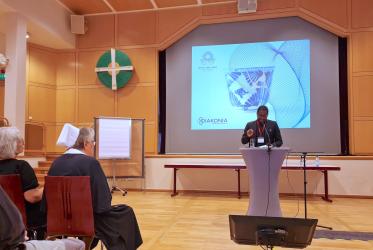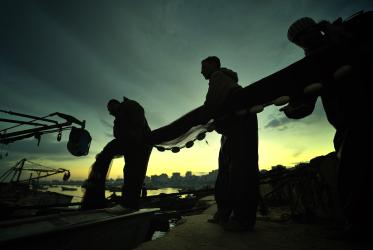Displaying 1 - 10 of 10
Ukraine: Responding to humanitarian need
08 September 2022
G20 summit: call to pray for peace in Hamburg
07 July 2017
G7 must address famine
22 May 2017
COP21: how climate change affects access to our daily bread
09 December 2015
Faith leaders urge action at UN climate talks
02 December 2015






